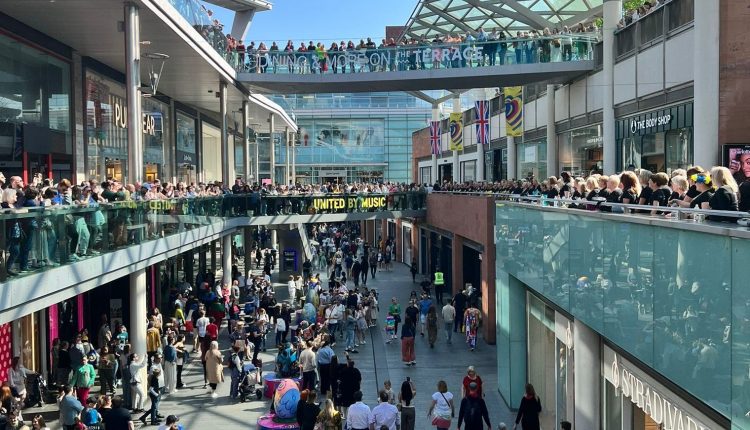In 2008, the £1bn Liverpool ONE complex opened in the midst of a global financial meltdown and the CEO of owner Grosvenor tells LBN its launch came at an ‘enormous cost’. Tony McDonough reports

Liverpool ONE owner Grosvenor took a huge financial hit on the £1bn development when it opened in 2008, its chief executive has admitted.
This year Liverpool ONE celebrates its 15th anniversary. It opened in two stages – in May and September – in 2008 which was also the year Liverpool was European Capital of Culture.
Also opening for the first time that year was the ACC Liverpool arena and convention complex. Both developments have proven to be massive economic drivers for Liverpool city centre – and may have even been its saviour.
Mark Preston, chief executive of Grosvenor, has told LBN the company took a huge financial hit on Liverpool ONE in 2008 due to the financial crisis. He also appealed to political leaders to think more long-term about growth strategies.
In 2013 the then chief executive of retailer John Lewis, Andy Street, spoke of how critical Liverpool ONE had been to Liverpool’s economy. The now Metro Mayor of the West Midlands said that without it, the city’s retail core was at risk of “market collapse”.
This would come as no surprise to anyone living in Liverpool at the time. The city centre’s retail offer felt tired and uninspiring.
Many people in Merseyside looking to embark on a big shopping expedition would be as likely to head for Manchester’s Trafford centre as they were to make the short trip to Liverpool city centre. Liverpool ONE, with its array of shops, restaurants and leisure outlets, changed all that.
Today, despite the current cost-of-living crisis and the pressure on the high street from e-commerce retailers, Liverpool ONE continues to thrive.
It has proved adept at reacting to changing trends. When iconic retailer Debenhams collapsed it left Grosvenor with a huge 180,000 sq ft hole to fill. Along with John Lewis, Debenhams had been an anchor tenant of the scheme in 2008.
Now the building is full once again. It is home to the £10m Gravity Max leisure venue and to retailer Marks & Spencer which has relocated its store from nearby Church Street, where it resided for almost a century.
Liverpool ONE’s influence has gone way beyond its own boundaries. Liverpool BID Company, which oversees the retail offer in the rest of the city centre, says footfall is way ahead of other UK cities.
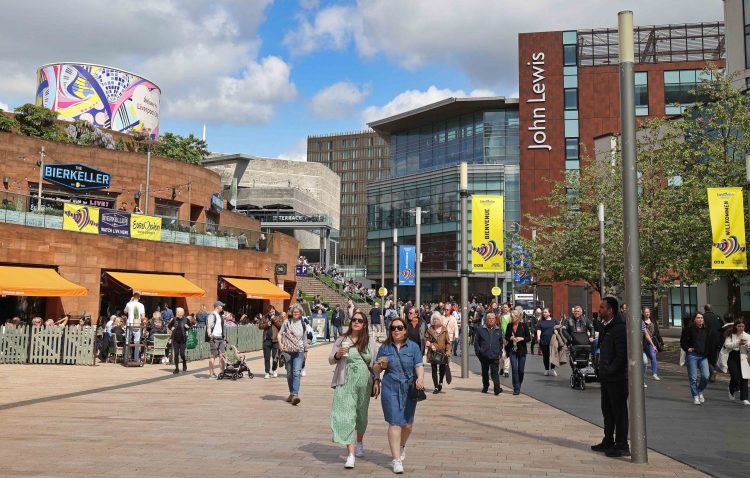
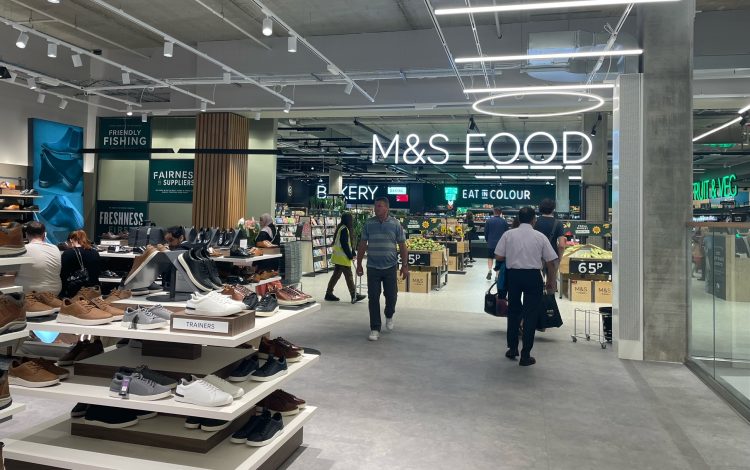
These days we take Liverpool ONE and the arena for granted. But, early in 2008, the world was plunged into a financial meltdown and there were genuine fears of how this would impact major regeneration and infrastructure projects.
This question was raised by LBN at a round table discussion event to mark Liverpool ONE’s 15th anniversary.
Topping the bill was Lord Heseltine, the former Minister for Merseyside who is credited as being one of the key drivers of Liverpool’s economic renaissance following the Toxteth riots in 1981.
A few days ago LBN published, at length, his contribution to the round table event. In particular, his call for more money and greater devolution powers for Liverpool city region.
Other speakers on the panel also offered their fascinating insights into Liverpool’s recovery over the past few decades. They included Mark Preston and Claire McColgan, director of Culture Liverpool.
We asked Mark whether the financial tsunami of 2008 had posed a threat to the completion of Liverpool ONE.
He said: “We were eager to make sure we opened as early as possible during that Capital of Culture year, which is why we had the two-stage opening.
“By then the financial crisis was getting into full swing and there were still lots of retail lettings we needed to complete. And, indeed, we didn’t complete a lot of those until later in the following year.
“There were also still negotiations over compulsory purchase orders so there were an awful lot of things going on at that time.
“So did we get the wobbles? Well I can speak very personally on this because at this point I was chief executive of the UK business that was responsible for making decisions on this.
“And there was no doubt in my mind that we needed to continue to complete as we intended. There were no corners to be cut and we weren’t going to change from what we, and the late Duke (of Westminster), had promised the people of Liverpool we would deliver.
“It was my job to deliver what he said he wanted delivered. So we stuck with it and financially it was very painful for us. It was done at enormous cost.
“But it was a commitment we had made and it is a hallmark of Grosvenor that we keep to our word. We also had faith that, in the long term, that by delivering on the quality and not cutting corners it would stand the test of time.
“Consequently it has proven to be a substantially good investment 15 years later. We knew history would be kinder to us if we stuck to our plans in what was a very difficult time financially.”
As Mark alluded to, Liverpool’s Capital of Culture celebrations added to the sense of urgency of getting projects finished on time.
Claire McColgan and her team masterminded the Capital of Culture celebrations. She spoke of the pressure everyone was under to ensure it all went as smoothly as possible.
“Capital of Culture had a start date and lots of people know the difficulties we had getting to that point,” she said. “We had a deadline of the start of January 2008 and it was my job to ensure we did get that show on in time.
“There was a load of brilliant people who were focused on getting that infrastructure right – whether it was the arena or Liverpool ONE.
“There is nothing like a deadline to focus your mind and I always think if we had slipped and hadn’t had that year, would all that development have happened as quickly as it did? Development that we now take for granted.”
Both Claire and Mark spoke about the importance of thinking about the long-term. She added: “I came to Liverpool in 1989 and people would say to me ‘why do you want to go to Liverpool?’.
“Now my daughter, who is 22, has just come back to Liverpool from being away at university and wants to stay here. She doesn’t want to be anywhere else.
“That is a generational change. It takes generations to change a place. And that is one of the issues with Levelling Up – everything is project-based and short-term. But it has taken Liverpool 40 years to where we are now.
“Where is the long-term planning? That is something we need to think about as a city and a region.”
Mark admits that Capital of Culture did “focus our minds” on getting Liverpool ONE built in time. He explained: “It was all about delivering it on time and a consequence of delivering it faster than we may have done it cost us more.”
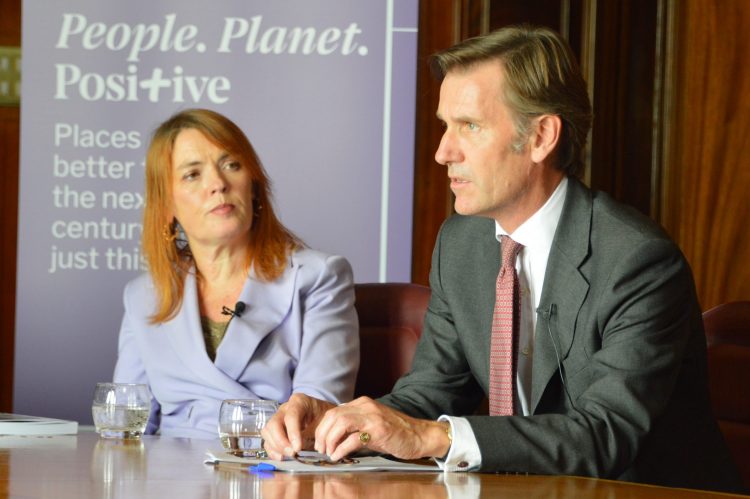
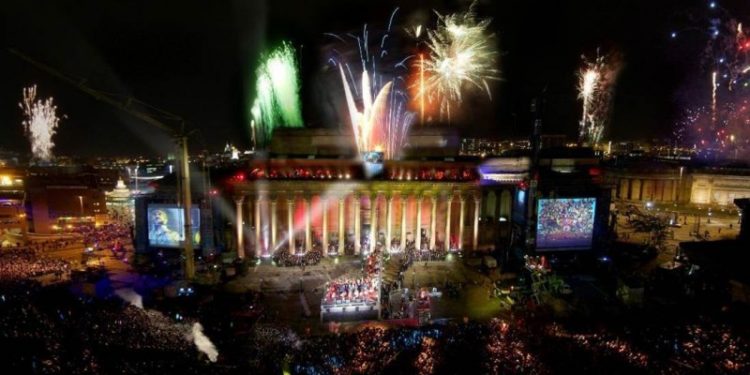
He also said: “We take a very long-term view of our responsibilities towards the communities in which we are active. And by being owned by a multi-generation family that lends us the advantage of thinking in longer timescales.
“Businesses hate uncertainty and inconsistency and, in the last few years, we have had both of those things. To have a proper long-term growth strategy in this country seems to me to be the right place to start. Then you allow the Levelling Up agenda to follow that
“Clearly what is lacking at the moment is proper long-term thinking. That is true right across the board across all the political parties. It is something that seems to have gotten worse since the global financial crisis.
“I remember thinking at the time that when short termism had been revealed to be the cause of the financial crisis ‘at last we are going to get some proper long-term thinking’. Instead we got even more short-term thinking. It made no sense.
“It is really important that we try to find a way of having a proper long-term plan of 10,20 or 30 years. But how can that happen when you have a change in Government every five years?”

